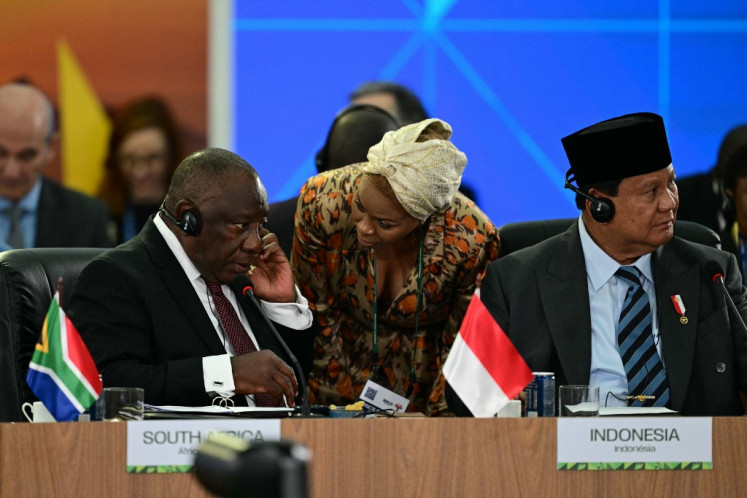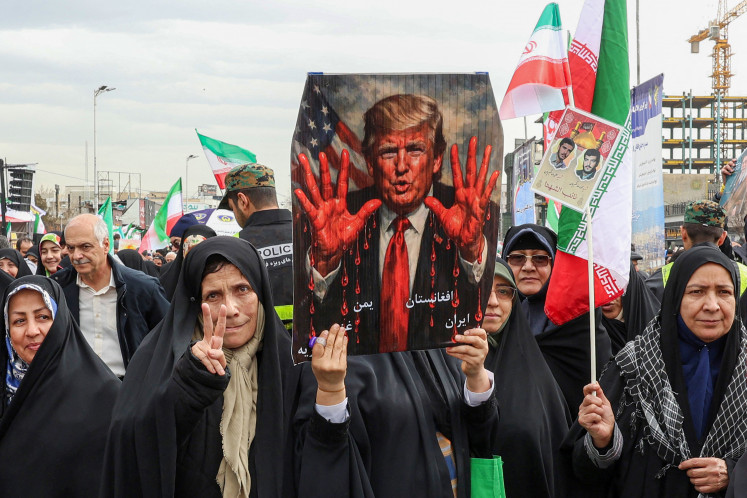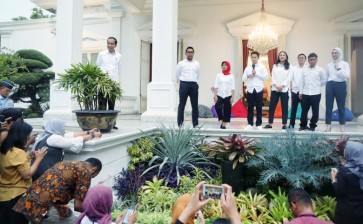Popular Reads
Top Results
Can't find what you're looking for?
View all search resultsPopular Reads
Top Results
Can't find what you're looking for?
View all search resultsReform caught between competition and compromise
President Jokowi’s reforms are now caught between the need to increase competitiveness in a race with regional competitors and the constraints that result from greater power sharing.
Change text size
Gift Premium Articles
to Anyone
U
nlike his previous term, the beginning of which was marked with brimming public excitement, President Joko "Jokowi" Widodo’s second term has had a lackluster reception. This is reflected in the latest public satisfaction rate, which took a nosedive to its lowest point since August 2016, according to the Indonesian Survey Institute, an opinion polling agency.
It is imprudent to judge an entire presidential term based merely on the absence of parades or low early public satisfaction rates. Nonetheless, such a comparative angle can provide insight about how Jokowi’s offer — as a non-elite and reformist figure — to share power with the political establishment and oligarchic forces can not only lower public satisfaction but raise doubts about continued reform.
No doubt President Jokowi has a compelling story to tell about his successful first term. He has largely put the country on the right track despite the political constraints of enlarging his coalition to 69 percent of the House of Representatives.
Despite unfavorable global headwinds, Jokowi’s administration was still able to maintain economic growth slightly above 5 percent with a low budget deficit and record spending. Government spending jumped about 40 percent after Jokowi took office, including a twofold increase in the budget for health and infrastructure. Jokowi became the first Indonesian president to double the infrastructure budget.
Massive social welfare spending has underpinned the world’s biggest universal healthcare program, which covers more than 200 million people and has reduced logistical costs for businesses. Moreover, rates of joblessness and poverty were at milestone lows. Inflation, too, was near a 10-year low until 2018, translating into solid domestic consumption.
The President has found a new passion for deregulation, one of the few topics where he often goes off-script while delivering a speech. He introduced an online single submission platform that simplifies and synchronizes business permits, slashing the time to get some permits to within hours. As a result, Indonesia’s Ease of Doing Business ranking is up from 129th place to 73rd.
But even with this commendable record, economic growth has not moved beyond 5 percent and largely has not been competitive enough compared to the growth rates of Indonesia’s regional rivals. In a Cabinet meeting on trade and investment, the President himself was puzzled. He compared the country’s growth to that of the human body. “If Indonesia were human, he would be in a healthy condition now. His cholesterol is low, his heart is good, his lungs work fine and there is no indication of high blood pressure. But why can’t he run very fast?”


















